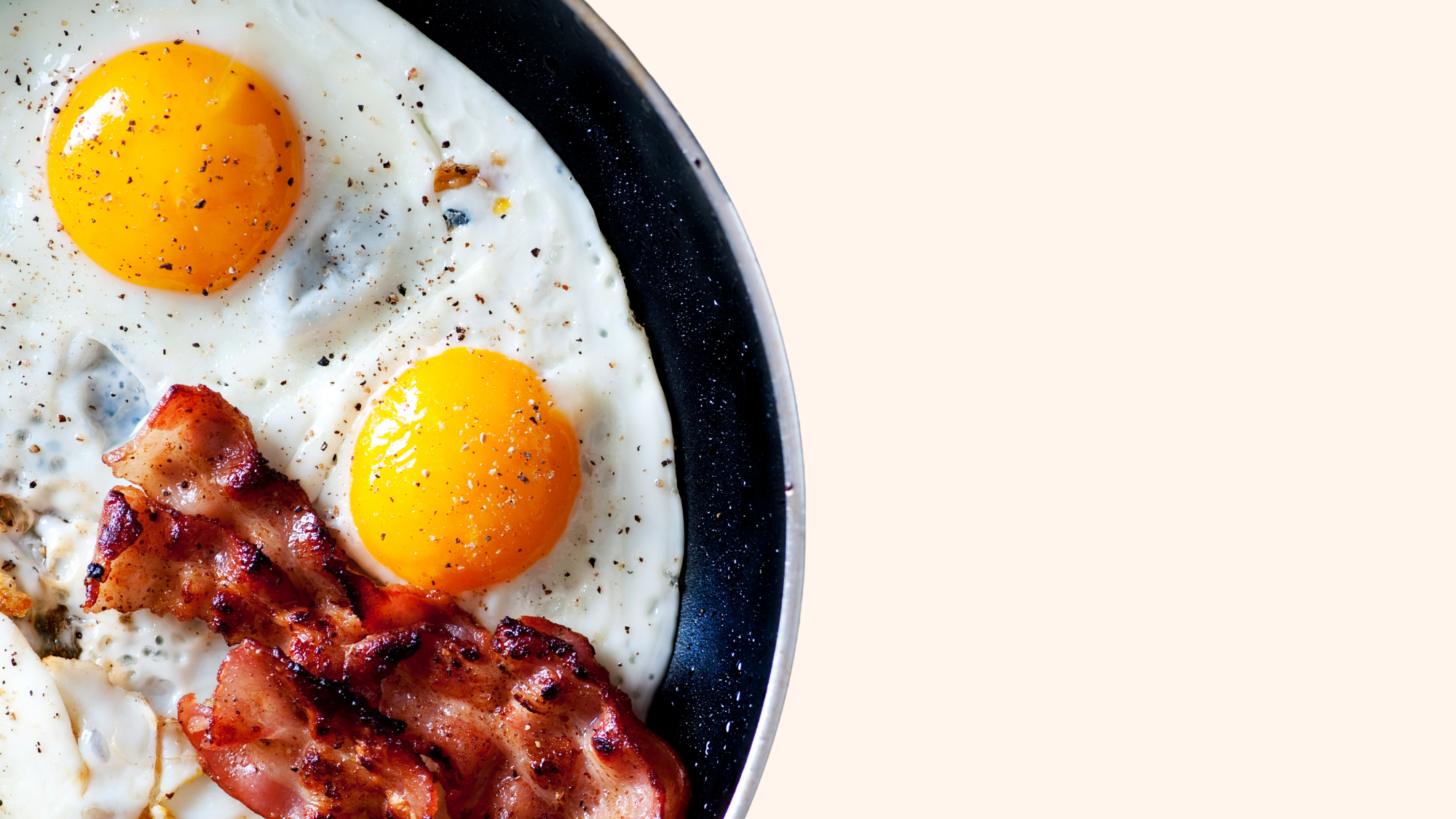The Carnivore diet is trending - but dieticians are warning not to try the fad
Here's why.


If you've seen the Carnivore diet doing the rounds on your social media feeds, you'll likely have clocked it as yet another fad diet.
Joining the likes of the Keto diet and Cambridge diet, celebrities spanning James Blunt and Joe Rogan have spoken openly about adopting the lifestyle - despite, as the name suggests, it requiring you to eat only meat and animal products.
Interest piqued about whether it can actually be good for you? We've done some digging for you and asked a top expert to share their take. First, let's start with the current research. There's not a tremendous amount of published research on the diet so far, and what there is tends to be self-reported. For instance, when researchers of a 2021 study from the Current Developments in Nutrition journal asked 2000 people who followed the carnivore diet about their health, participants reported high levels of satisfaction and improvements in their wellbeing.
That said, researchers also found their LDL-cholesterol was markedly elevated, and often self-reported information about our health wasn't accurate, leading the researchers to conclude that participants might have convinced themselves they felt "better" because they wanted the diet to work.
Other studies show that low-fibre diets, including the Carnivore diet, lead to a higher risk of colon cancer, type 2 diabetes and cardiovascular disease, to name just a few.
Keen to read more about the trending Carnivore diet, what it actually entails, plus whether it can ever be good for you? Keep scrolling, and don't miss our guides to the inflammation diet Health Editor Ally Head has been trying this year or the best menopause diet to ease symptoms, while you're here.
The Carnivore diet is trending - your need-to-knows
What is the Carnivore diet?
As the name suggests, the Carnivore diet requires eating only animal products or products that come from animals and limiting or removing plants from your food. Think more meat, dairy, poultry, eggs, and little to no fruit, vegetables, grains, legumes, nuts or seeds.
Celebrity news, beauty, fashion advice, and fascinating features, delivered straight to your inbox!
Former orthopaedic doctor Shawn Baker, who published a book titled The Carnivore Diet in 2019, invented the diet after suffering from joint pain and not making progress with his own body composition. Transitioning from paleo, to keto, to all meat, he now swears by the diet to his millions of followers.
In the book, he writes that "the top three issues I’ve observed being improved by a Carnivore diet are joint pain, digestive health, and mental health" and touts the benefits of flipping nutrition on its head to focus solely on meat eating.
Since then, it's been picked up by many influencers who have shared their journeys with the Carnivore diet and how it's improved their health. And good for them - it's excellent news when people find an eating style that works for them and lets them live healthy lives. The problem, as dietitian Sophie Medlin points out, is that "there isn’t any scientific evidence to show that a carnivore diet is safe but there is an overwhelming about of evidence to show that it isn’t, despite what influencers in the space might suggest."
The diet is an extension of diets like keto and the Paleo diet, which suggests eating more like our ancestors by reducing carbohydrates is a good way to improve health. While the 2021 study from Current Developments in Nutrition reported that some people with type 2 diabetes saw improvements in their blood glucose levels, it's not safe for most people to go without carbs and fibre, says Medlin - and it's also unlikely to represent what historic humans would have eaten. "It is ludicrous to suggest that our ancestors wouldn’t have eaten plants as a main part of their daily diet," she says.
A post shared by Sophie Medlin (@sophiedietitian)
A photo posted by on
Is the Carnivore diet good for you?
If you know anything about nutrition, you'll know that eating a diverse range of vitamins, minerals and nutrients is key to overall health - something which eating meat alone cannot provide. (There's a reason experts like Professor Tim Spector advocate for eating 30 different types of fruit and veg a week).
So, what did the qualified dieticians we spoke to for this piece think of the all-meat diet? "The carnivore diet has grown in popularity - particularly with men - over the last few years," acknowledges Medlin. "This is despite it being the complete opposite of what decades of nutrition research has shown to be healthy."
What, in particular, is such a no-no about the diet? Well, "including plenty of plants and wholegrains in your diet and limiting red meat has been scientifically proven to reduce your risk of heart disease and many cancers," she continues - and that's before you even consider that our gut microbiome depends on plants to function. "The academic nutrition community has significant concerns about the risk of both heart disease and cancer in the carnivore community."
Not to mention that all the research is self-reported and not published or peer-reviewed. The experts we spoke to for this piece stressed you'll likely find that the health benefits people claim to see are pretty short-lived. One study of the keto diet, which involves a similar macronutrient intake as the Carnivore diet, found that the first six to 12 months of the eating style lead to transient decreases in blood pressure, blood fat levels and weight loss - but these benefits generally weren't seen after a year on the diet. In fact, long term, the diet has been associated with kidney stones and vitamin deficiency.
"Meat alone doesn’t provide us with the broad range of nutrients we require, including vitamin C which causes scurvy if we become deficient," says Medlin. Meanwhile, a landmark review published in 2019 by the World Health Organisation found that eating more fibre from wholegrain cereals, pasta and bread as well as nuts and pulses cut people’s chances of heart disease and early death.
The key to a balanced diet is aiming for a combination of carbohydrates, protein and fat with every meal and snack - you really shouldn't cut out carbs or risk lacking energy, says Medlin.
Overall, her opinion on the Carnivore diet is that it's not good for your gut or overall health. While there's no "perfect" way to eat and what works for you and your body will be different than the next person, most research suggests loading up on wholegrains and fibre, eating lean proteins, and being mindful of your red meat intake is the best way to feel good.
"How I found trying the Carnivore diet for four months."
Tracy Ariza of the Oh, The Things We’ll Make! blog speaks candidly on her YouTube channel about her own experiences of trying the Carnivore diet for four months.
"My skin has completely cleared up, my eczema on my ankle has almost completely cleared up, and I have a lot more energy and mental clarity."
Going on to reflect how the Carnivore diet is often advertised as a weight loss diet, she shares that she personally hasn't lost any weight on the diet - "be aware: not everybody necessarily loses weight." That said, she says she's been eating more and more often and feels like her clothes fit better.
"The only thing that I haven't completely loved are the social implications of it. When you go out, you get looked at strangely."
Does she think she'll stay on the Carnivore diet forever? "I don't know. It's likely that I will add fruits and vegetables that are low-oxalate at some point."
How healthy is a carnivore diet?
As dietician, Sophie Medlin points out, while those who have tried the diet argue that it's suitable for humans and can aid weight loss and ease joint pain, there is no peer-reviewed scientific evidence to confirm this yet.
There is, however, around 50 years' worth of scientific evidence that indicates aiming for a balance of carbohydrates, fat and protein, and plenty of fibre-rich fruit and veg, is the way to go for optimum health.
So, short answer and according to our expert: not very. As of yet, simply not enough research has been done to document the long-term side effects.

Chloe Gray is a freelance journalist who writes and talks about health, fitness, and wellbeing through a feminist lens. She was part of the launch team for Stylist magazine's fitness brand, Strong Women, and has written for i news, Women's Health, Red magazine, Good Housekeeping, Refinery29, and more. She's all about building mental and physical strength, eating delicious food that fuels you well, and making the fitness industry more accessible and enjoyable. She's also a qualified fitness trainer and research nerd, so you can be sure everything you read is backed by proper science.